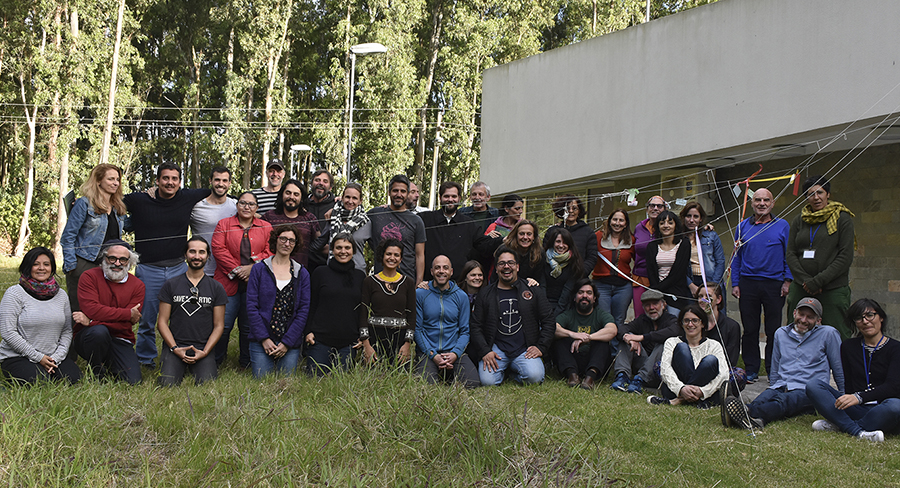SARAS, a young and transdisciplinary institute looking for the Latin American vision

Since its inception, more than a decade ago, SARAS Institute has sought to become a different and innovative educational and research space for the region, trying to position itself as a leading academic teaching and research institution focused on issues related to sustainability and resilience through transdisciplinary work and the interaction between art and science from a Latin American perspective.
SARAS was created from a dream that Marten Scheffer (Honorary Fellow Ex-officio of SARAS Institute) and Néstor Mazzeo (Executive Director) had in 2006. Today, with more than 10 years of existence, SARAS vision has become a reality. Since 2016, the institute is headquartered in Bella Vista, Maldonado, Uruguay.
What seemed to be a distant goal, was materialized as a result of the contacts made with several people who, motivated by the same vision and spirit, through their work and cooperation, regardless their location in the world, managed to make contributions that resulted in important learning and allowed the continuity of that dream.
Considering this continuity, members of the first Advisory Board always visualized a rotating board to achieve the greatest breadth of knowledge and also that South America has a broad participation within the organization.
It should be noted that one aspect that sets SARAS Institute apart from the classical structures of academic institutes is the desire and the need to integrate and bring focus to the link between art and science, which has promoted many collaborations and has been a motivating factor during its early years, when artists and scientists from all over the globe joined SARAS.
In December 2018, during the annual meeting of the organization, a new conformation of its Advisory Board was established. The significant change related to the co-direction of that board, with the departure of Marten Scheffer (University of Wageningen, Netherlands), a founding member, who from that moment forth became Honorary Fellow Ex-officio. Laurie Beth Clark (University of Wisconsin-Madison, United States) was appointed as director, sharing the leadership with Esteban Jobbágy (National University of San Luis, Argentina). Since its beginning, the spirit has been that the shared leadership of the Advisory Board considers profiles from arts and humanities and sciences. In this way, the direction will continue to rotate asynchronously in order to achieve continuity and intending to lead the organization from Latin America.
At the same time, Eduardo Viola (University of Brasilia) and Patricia Balvanera (National Autonomous University of Mexico and vice president of the scientific committee of the Program on Ecosystem Change and Society – PECS), also left the Advisory Board. Pedro Jacobi (University of São Paulo – Brazil) and Rafael Calderón Contreras (Metropolitan Autonomous University, Mexico City) joined as new members. The rest of the members of the Advisory Board remain unchanged and include Cristina Zurbriggen (Faculty of Social Sciences, University of the Republic, Uruguay), Matilda Baraibar (Stockholm University), Henrik Österblom (Stockholm University), Jesee Lee Kercheval (University of Wisconsin-Madison), Ricardo Ehrlich (Pasteur Institute of Montevideo), Stefan Gelcich (Pontifical Catholic University of Chile), Jorge Marcone (University of Rutgers-New Brunswick) and Mariana Meerhoff (University Center of the Eastern Region and the Faculty of Sciences, University of the Republic, Uruguay) as always, seeking to maintain a balance between the different disciplinary fields and regional-international perspectives.
We would like to mention that coinciding with the departure of Marten Scheffer, the academic journal Ecology and Society published the history of SARAS this year. In order to summarize the spirit and vision of SARAS, we quote the following phrase from this publication: “If SARAS can maintain its “dream” in a continuous process of rejuvenation of its diverse team based on trust, it will be seen as a growing source of inspiration and success for the region.”.
To learn more about SARAS members click here
